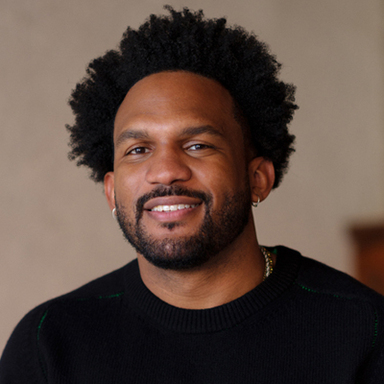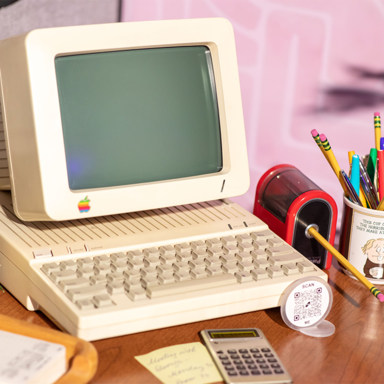
Walter T. Geer III: "DEI Is Dead"
By Brett McKenzie on Sep 21, 2023
VMLY&R Health exec explains how the industry dropped the ball on diversity
We are three years removed from the murders of George Floyd, Breonna Taylor, and Ahmaud Arbery. We are three years removed from the resulting anger, and three years removed from the advertising industry’s fervent pledge to do better regarding diversity within its ranks.
Promises made, promises kept? Not if you ask Walter T. Geer, Chief Experience Design Officer at VMLY&R Health and one of the loudest megaphones in the biz when holding feet to the fire.
Ahead of next month’s Where Are All The Black People?, The One Club for Creativity’s annual diversity conference and career fair, we chatted with Walter about how the industry has dropped the ball… and isn’t overly concerned about picking it up.
Let’s go back to 2020 when the global spotlight was on the killings of Floyd, Taylor, and Arbery and the resulting tipping point. The ad industry boldly stepped up and announced that things would change…

That was all performative and all bullshit. We’ve seen these moments time and time again. It’s like being in an abusive relationship, where the abuser promises to be better, is better for a short time, then forgets, and it’s all back to how it was again. And the abused keeps coming back because there’s this thought that that’s all there is, that’s the only option they have.
Look at the report that the 4A’s recently put out. In 2021, a year after the latest promise to change, 73% of agency leaders were white. And a year after that, the number jumps to 90%! All while the percentage of Black executives decreased! No better proof shows that the industry is over that moment.
When you look across all of the holding companies in the US, there are only seven Black C-suite creative executives. How is that even possible?
Promoting a handful of us to the top isn’t solving the problem. Bringing in a bunch of Black and brown people in entry-level positions but not setting them up for growth is not solving the problem. You still have folks who feel that creating opportunities for others means that they lose out on opportunities for themselves and have to push someone else out. That’s simply not the case.
Do you think things went wrong right from the jump?
Oh no. I believe that many people meant what they said back in 2020. But then a year, two years, three years later, they realized that ‘shit, nobody’s really tracking where I’m putting my money. Nobody has access to know where I’m putting my money. We don’t have to allocate these millions of dollars; I think we’ve done enough so far.” This has been happening in different situations for many decades: drama happens, they dangle a carrot, saying everything is gonna be good, and then they yank it away. It’s performative, but what they have going for them is time. They know that people get tired of complaining about this issue. Look at LinkedIn; you’ll notice that there has been a steady decline in people even talking about the issue.
DEI is dead. And when I say that, I don’t mean that the role of DEI isn’t essential, but rather that people, by and large, don’t give a shit anymore. Because they don’t have to. Because nobody is still holding their feet to the fire. Nothing will happen to them if they choose to do nothing.
Agencies won’t get into trouble if they don’t give money back, so why bother? Go to any company that promised to invest ten, twenty, or fifty million dollars in such initiatives. Who is doing the research to find out where that money went? Ask any of the owners of these Black-owned agencies that the industry pledged to support if they’re seeing any of that money now.
One of the reasons why the #MeToo movement was successful was because white men were getting called out by name. And to fix the problem, they began promoting women left and right. Nobody wanted to be the person in the middle of the fire. There were reputations at stake here, but nothing is at stake when you don’t move to put people of color into executive roles or other positions of power.
"You still have folks who feel that creating opportunities for others means that they lose out on opportunities for themselves..."
Do we need to be calling out people by name?
I was doing that. I called in my own CEO, John Cook, who graciously went live with me to show the changes we were making and continue to make. I called in Gary Vaynerchuk, who then hired four Black C-suite execs shortly after. I called in P&G’s Marc Pritchard, arguably one of the most powerful men in advertising to discuss the changes they are making in front and behind the camera. These call-in’s worked in many cases, but who is doing that now? And even if someone did start calling people out today, what is the fear? In the shadow of the pandemic and those murders, there was fear. But three years onward, there is no fear of being called out.
Then what is to be done?
That’s a tough question, but we must continue making noise and calling people in to be transparent and candid. We must shine a light on the people they should be elevating. The seven of us who have been elevated to C-suite need to be as successful as possible to serve as an example of why advancing people is crucial. But that’s all we can really do — continue to make noise.
WAATBP 2023 takes place virtually on Thursday, October 26, and live in New York City on Friday, October 27.
Related



